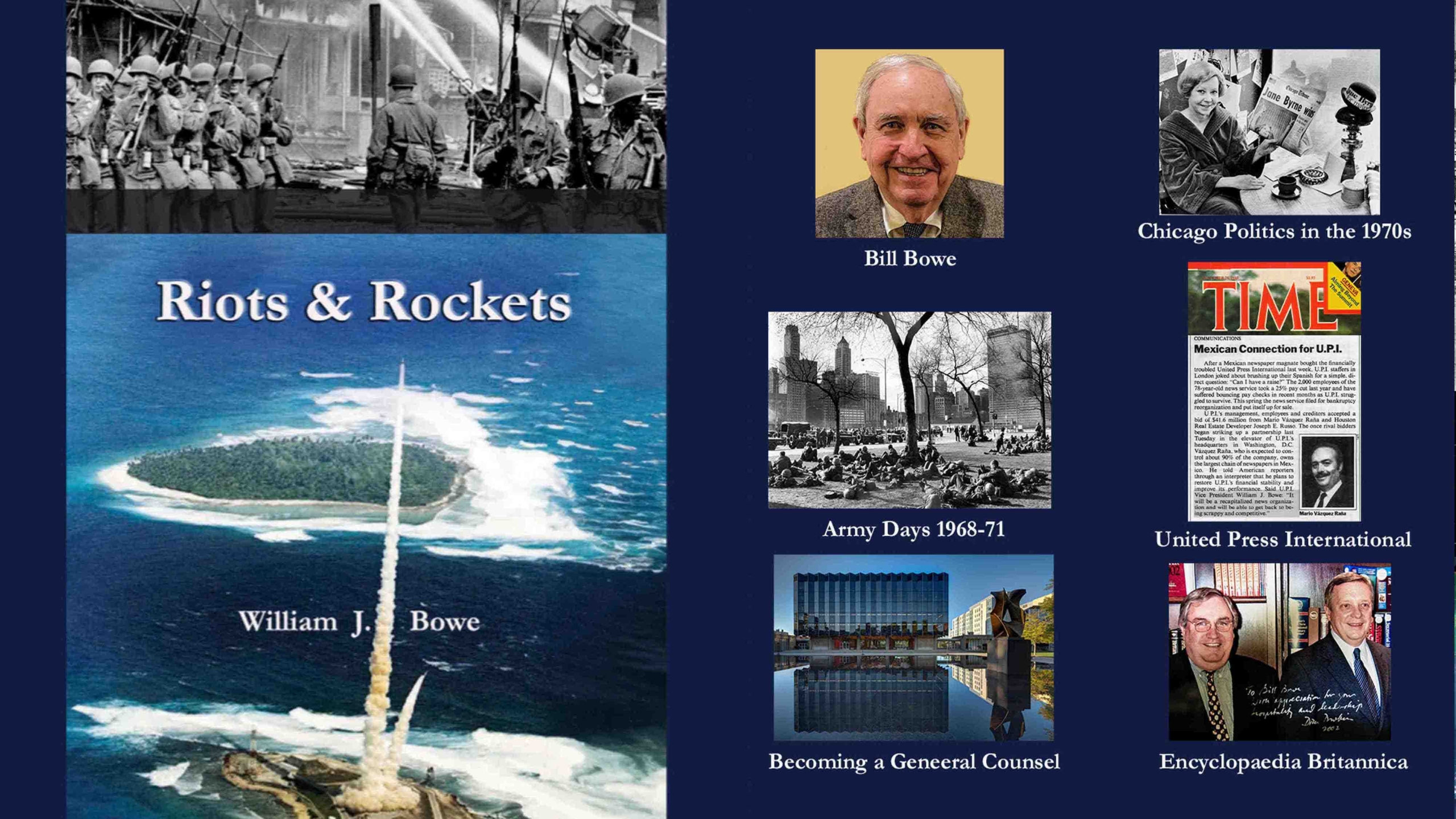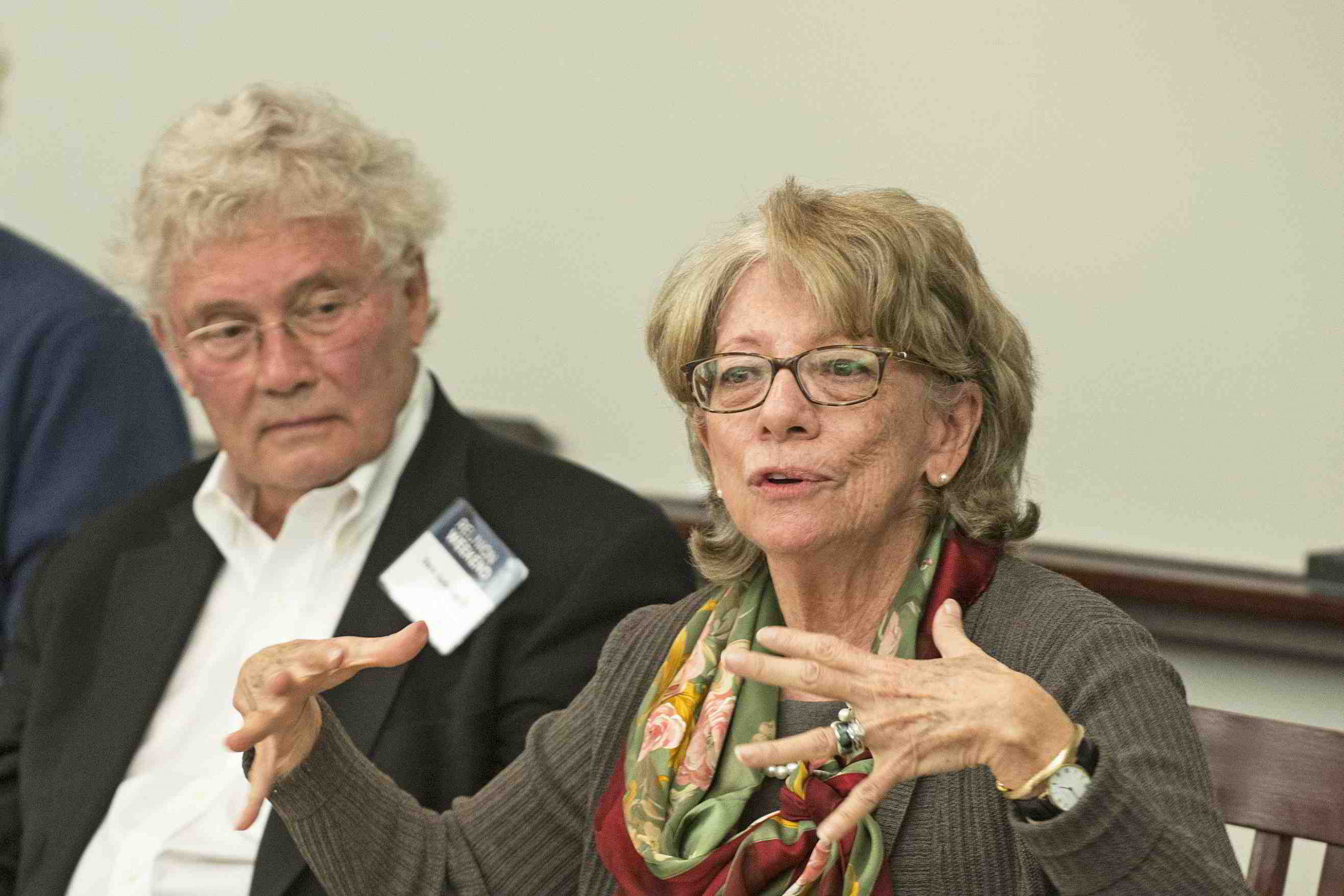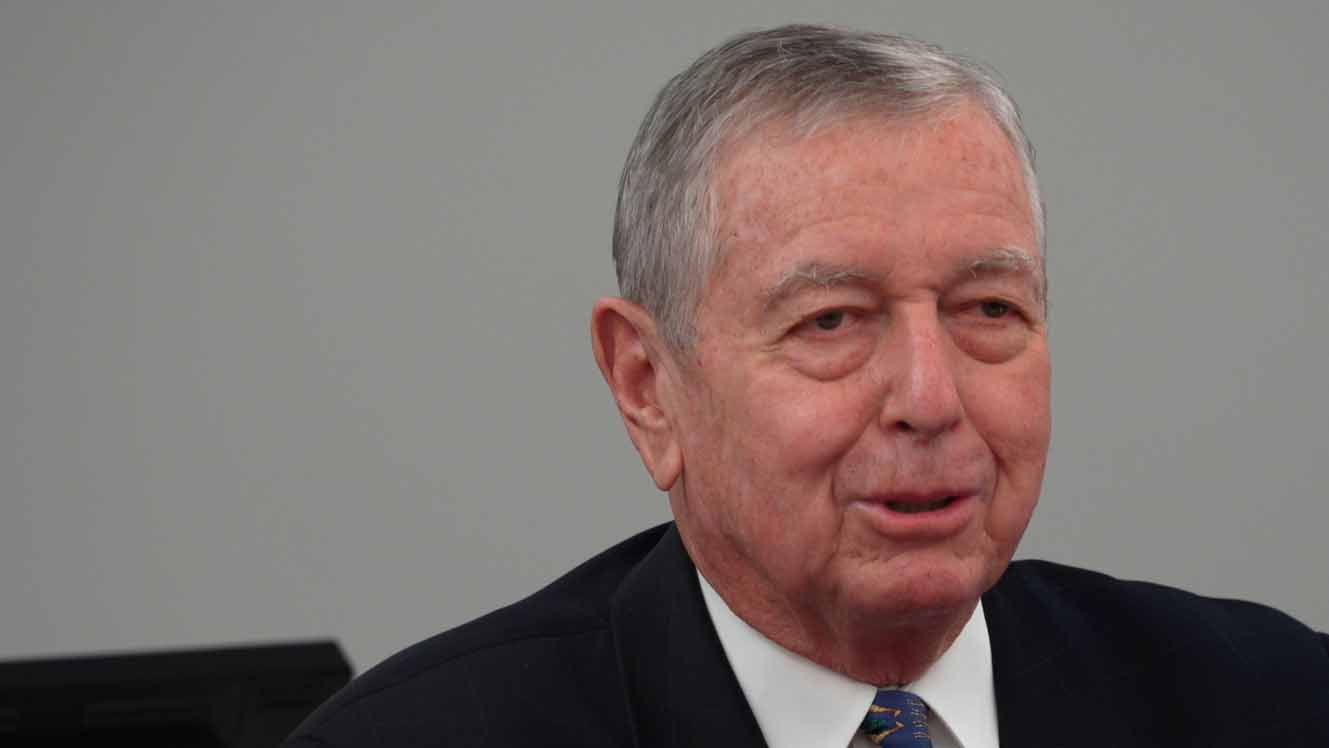Editor’s Note: The last question posed to John Ashcroft was put by his classmate David Goldberger. Serving for many years as Legal and Legislative Director of the American Civil Liberties Union Illinois Division, David finished his career as a law professor teaching First Amendment Law at the Ohio State University College of Law. Noting John’s elevation of liberty to the highest value, David asked John if democracy and cohesion in a society wasn’t undermined by an exaggerated sense of individual autonomy and liberation.
John answered this question by focusing on the role tolerance needs to play in a democracy for it to be healthy. However, he said that those propagating morally repugnant views have no right to expect affirmation of their views or that others should work to enable them.
N.B. In 2017, the Ohio ACLU granted David Goldberger the Norman Dorsen Presidential Prize for his lifetime contribution to protecting cherished fundamental freedoms. In doing so the organization said in part:
Professor Goldberger always knew he wanted to make a difference, but when he chose to attend the University of Chicago Law School, he could not have known the impact he would make on protecting First Amendment rights for everyone and the monumental effect the cases he argued would have on his life. Four cases in front of the United States Supreme Court, a number of civil liberties victories, and decades later, Professor Goldberger is still just as committed to protecting constitutional rights — even taking on pro bono civil liberties cases for clients unable to afford counsel.
Taking on Tough Issues
Early in his career, Professor Goldberger served as the Legal and Legislative Director for the American Civil Liberties Union, Illinois Division. He is most well-known for the 1977 case National Socialist Party of America v. Village of Skokie (obligating state courts to provide expeditious review of injunctions against public assemblies). The case began when nazis sent requests to several Chicago suburbs, including Skokie, seeking permits to hold a rally in their towns. While most towns ignored the request, Skokie banned the rally and put laws in effect that would ban most political rallies, not just the rally requested by the National Socialist Party.
The decision to represent the National Socialist Party was a wildly unpopular move as the suburb had a large Jewish population, including many Holocaust survivors. Professor Goldberger admits that this was the most difficult case of his career, but to this day he believes it was a critically important case to take. The case made it all the way to the Supreme Court of the United States, and by defending what many deemed to be highly unpopular speech, Professor Goldberger helped protect free speech for all of us. It took someone truly committed to the core of free speech rights to take on this case, and Professor Goldberger was unwavering in his belief that the ACLU should take cases to guard our freedoms — even when they aren’t easy.
Championing the First Amendment
After Skokie, Professor Goldberger continued to take on critical First Amendment cases and achieve crucial victories in front of the Supreme Court of the United States. In the 1980’s Professor Goldberger accepted a job at the Ohio State University College of Law and joined the ACLU of Ohio’s board of directors as general counsel. In this role, Professor Goldberger argued McIntyre v. Ohio Elections Commission before the Supreme Court of the United States in 1995 (invalidating Ohio statute prohibiting distribution of anonymous, non-libelous, campaign literature). Also in 1995, Professor Goldberger was co-counsel in Capital Square Review and Advisory Board v. Pinette. In 2005, Professor Goldberger successfully argued before the Supreme Court of the United States for the second time in the case of Cutter v. Wilkinson, safeguarding a federal statute protecting the right of prison inmates to freedom of religion.








